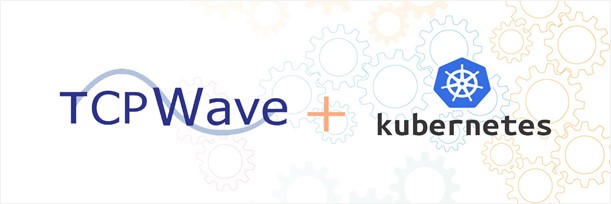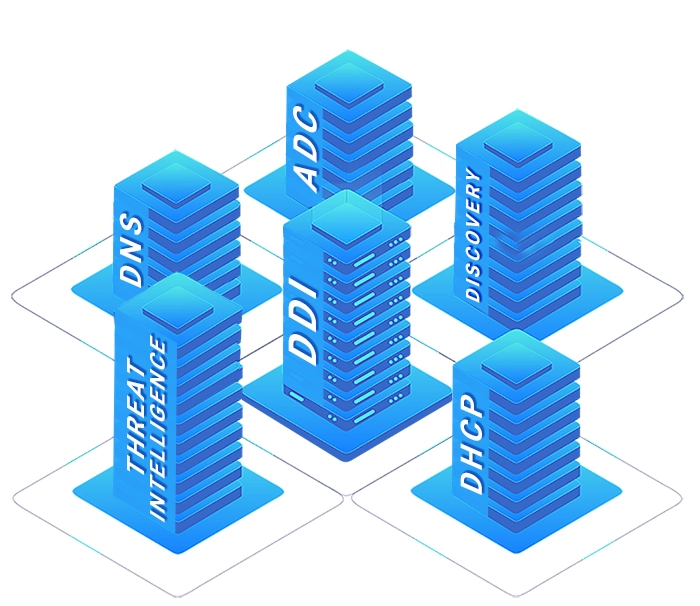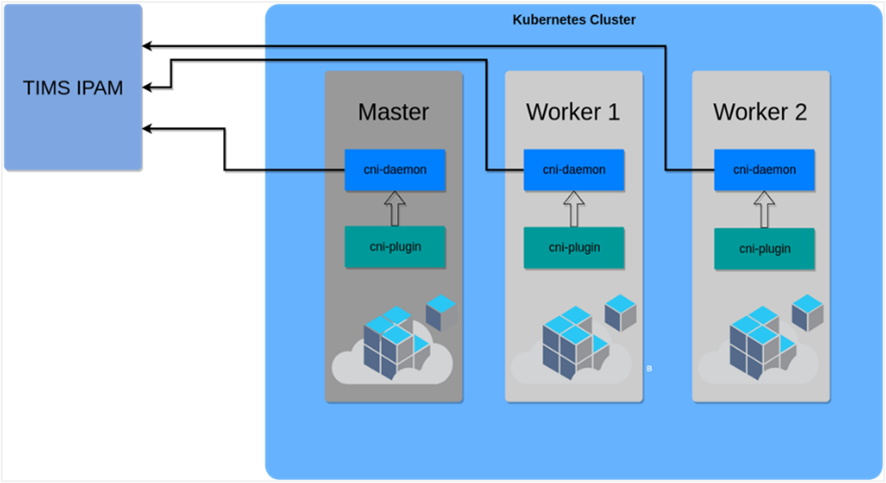Kubernetes is an
open-source container-orchestration system for automating
application deployment, scaling, and management. It provisions and
maintains the lifecycle of containers. During provisioning of the
new containers, it assigns IP addresses to the containers. The
purpose of the TCPWave's Kubernetes integration is to capture these
IP addresses into the IPAM and release the IP addresses when the
container is destroyed.

Each networking plugin
has its own approach to IP address management. The simplest approach
is to use the built-in static IP allocation provided by the
Kubernetes which is extremely basic and IP addresses cannot be
tracked. To overcome this limitation TCPWave has come up its own CNI
(Container Networking Interface) plugin and makes the tracking and
the visibility of these IP addresses much simpler.
To achieve this,
TCPWave's product engineering team has built a plugin aligned to the
CNI specifications. This plugin will focus on assigning and
reclaiming the IP addresses to and from the containers. TCPWave does
not provide basic authentication and uses only SSL certificates for
communicating with the IPAM. This feature makes TCPWave's IPAM much
more secure compared to the plain text authentication performed in
the alternate DDI solutions.








